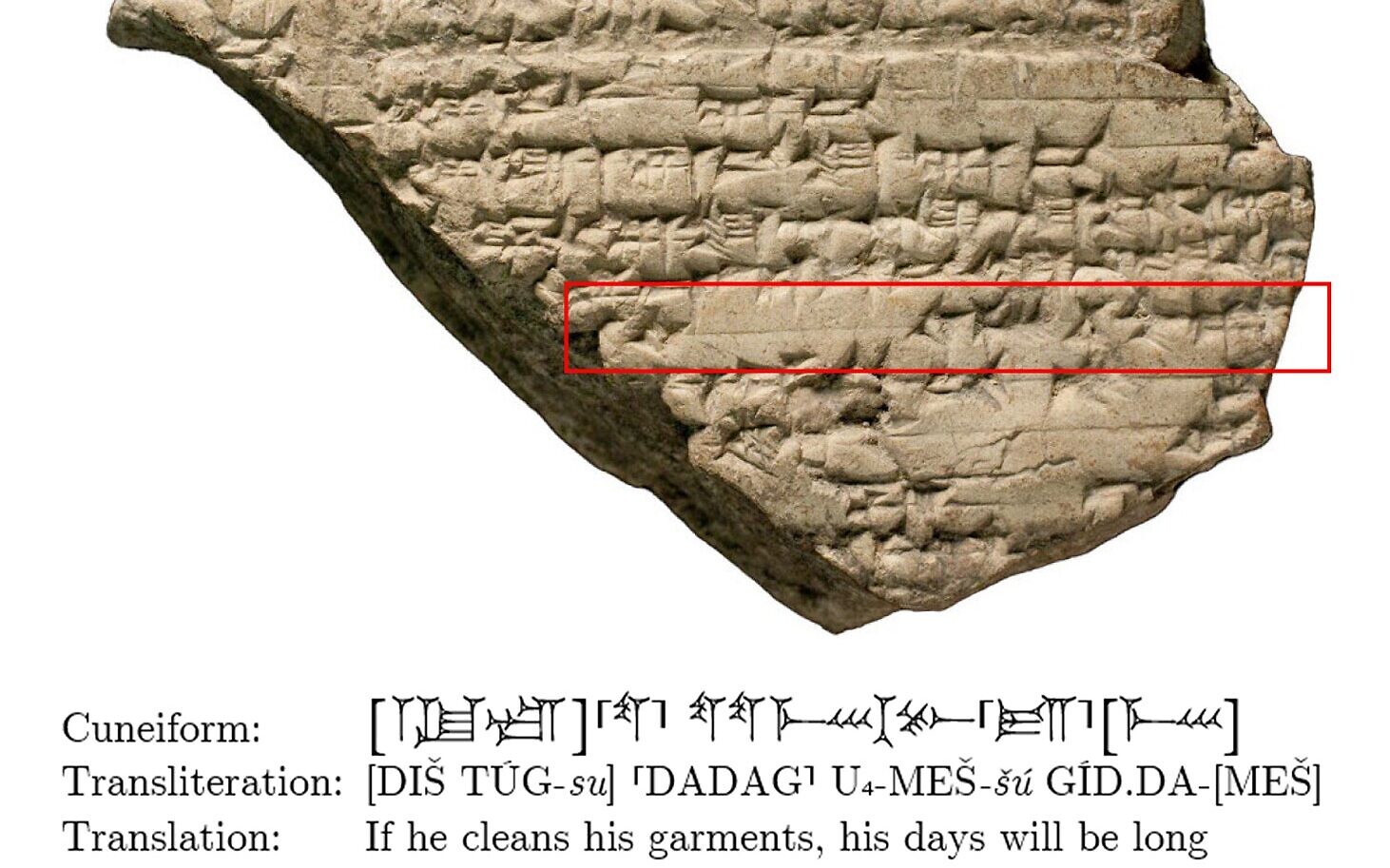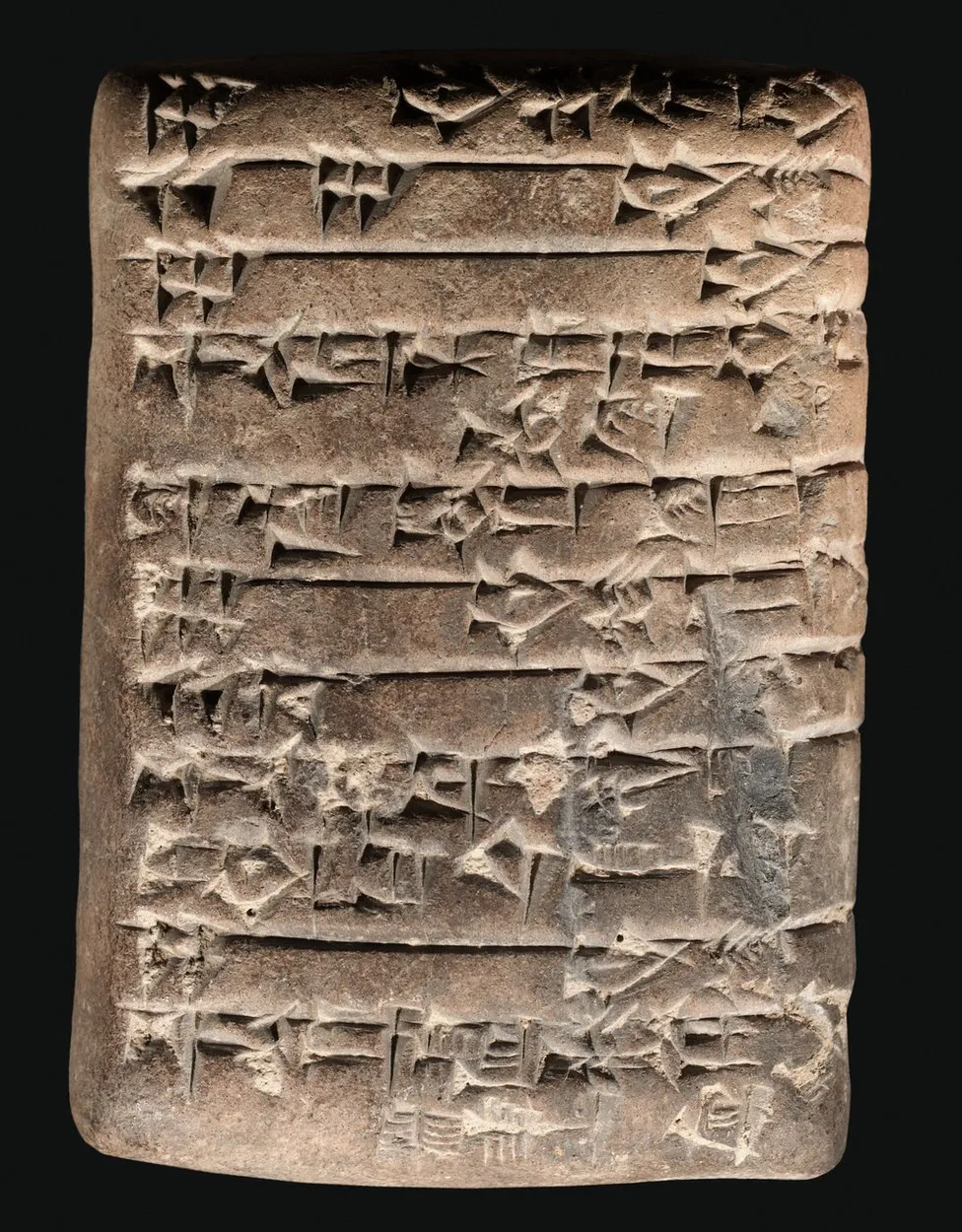Tiny Walk Through the History of Ancient Civilizations with Their Geniuses and Problems
In order to properly deliver this idea with maximum efficiency, I need to lay down basic history regarding the oldest recorded human civiziliation on eath. In which that is to study the history of the Sumerian and Assyrian Civilization.
The oldest proof that we humans can found that there is an actual proof of the oldest origin of how "writing" came to being.
Yuval Noah Hariri, in his international best-seller, Sapiens, describes the trigger-event being populations and property reaching a critical threshold that strained the mental capacity to store all the information needed to keep the society functioning:
The first to overcome the problem were the ancient Sumerians who lived in southern Mesopotamia. There a scorching sun beating upon rich muddy plains produced plentiful harvests and prosperous towns. As the number of inhabitants grew, so did the amount of information required to coordinate their affairs. Between the years 3500 BC and 3000 BC, some unknown Sumerian geniuses invented a system for storing and processing information outside their brains...
The general idea is that they took a clay and wanted to distill information onto it. Like a broadcasting system so their civilization is much more organized and to sustain the survival of their people. Here is a snippet on how their "language" or rather "writings" are written on a clay tablet then the information to be transferred from one person to the whole village as a mean to efficient information flow:

It started as a mean to (assumed) transfer information, this makes a lot of sense because as civilization began to grow and the division of labor becomes somewhat inevitable. Some need to pay attention to how much food intake they aim to get, how much food they need to store, how much food they have left.
Then it snowballs into immortalization of thoughts. Using language not only as a mere tool of transfer crucial information to sustain living by means of securing the amount of foods, but also as a medium to transfer ideas.
A lot of sumerian cuneiform is really hard to read for example:


It is very interesting. This is the very first ever record of immortalization of the individuals' thoughts. Some have dedicated hefty amount of time understanding what these writing means.
I only have some filmsy memory looking back on when I studied these but that was months and some are years ago. I now can only find a vice article that talked about it.
There is a surprisingly relatable description of depression and heartbreak from 3,000 years ago in Mesopotamia, the land between the Euphrates and Tigris rivers that hosted the peoples of Babylon and Assyria.
“If a man eats (and) drinks, but it does not approach his flesh, he is sometimes pale, sometimes red, sometimes his face becomes darker and darker, he is worried, he is depressed, his heart is not up to speaking.”
Behaviors that suggested confusion— like wandering around without realizing what you’re doing, laughing without reason, or crying out—were recorded. There are, in fact, two phrases referring to crying out—one is just a sound, and the other translates to, “Oh my heart!” or “Oh my insides!”
Looking at the ways mental symptoms were described forces us to reckon with our own meaning-making structures around emotional distress and place them in our specific cultural and historical contexts. It also, though, connects us to a broader legacy: For thousands of years, humans have been trying to make sense of their emotions as they exist in relationship with the world; our distant ancestors struggled with similar agonies we do; and all along, people have sought to treat, be treated for, and understand that distress.
Mesopotamian treatments were often about a practitioner spending a lot of time with a person. “They would make them these fancy necklaces with shiny, precious stones, putting them on the patient, saying incantations over the patient,” said Willis Monroe, a historian at the University of British Columba who studies astronomy and astrology in cuneiform texts. “You’re probably going to feel better after that to some degree. You walk away with a shiny necklace, a nice smelling sachet, and things seem a little bit brighter.”
"Even if the symptoms get organized slightly differently, or the labels are slightly different from one time period or place to the next, I think it’s important to show how old our experiences are,” Al-Rashid said. "There are these common denominators in our experiences of mental distress that have always been there. And a lot of people say it makes them feel less alone."
Hmm yeah, there's a lot to unpack here. I started writing this article with an intent and hope to find that one funny quote that I found that apparently there's a note that the there's a cuneiform text that speaks of worry out of the worry of not having enough money that makes the individual who wrote that cuneiform depressed. I am going to still pursue that path. I am struggling to find the direct quote of the cuneiform of that text but we can emulate the condition using other evidences. I want to show you a transcript of transaction written on a cuneiform as a basis of how wealth is important in this civilization. There is one written by BBC, How the world's first accountants counted on cuneiform

This tablet has an account in Sumerian cuneiform describing the receipt of oxen
There were human conflicts and human problems that comes stems from human concerns.
The Oldest Problem in Human History and the Revolve
When civilization is wired it to the point is new individual is brough to existence, not knowing much about how their grandparents have placed them in a place of an ordered society. One must "work" to provide something of value to the group in order to "survive". The way to survive is first done through the availability of shelter and accesibility to food to sustain one biological needs. In order to get money, the individual must "work" to receive something of value that can be exchanged to fulfill the individual biological needs and to pay for other things.
This is what I call to be "The Revolve" (to move around (something) in a path that is similar to a circle.)
In a templatize way and many debates, memes, and such. People go around and say "Oh, how much easier would life be, if i just have enough money." Money embodies an accrued sense of value. To the same reason why people invent words such as "Net Worth". The word "Net Worth" is almost funny, as if people who are in debt are literally explained as someone with "negative net worth". Struggle, struggle, struggle. Problem, problem, problems.
This is where I propose a radical idea of perpetual cycle of value creation as a function that keeps society and humans in order. To bend one's mind to think about jobs.
If we just plot a line on the origin of civilization and how "value exchange" ultimately makes ancient civilization much more organized as they will literally struggle to maintain all basic necesities up to leisure if they don't have a medium of "value exchange" determined by "market price", their civilization will collapse and we probably will never heard of them existing.
People were brought into existence not knowing where they belong in the civilization or even the world. They only learn initially from their parents, "the purpose of living", some are fortunate enough to be brought into existence and to have a nice shelter, then to sustain their lifelihood, they must place themselves among the society to earn "Value" on their own. There are two types of value: value accounted by price and value perceived by satisfaction. Value accounted by price is easy as it is quantitative by nature, value perceived by satisfaction is hard because it's only through each to its own subjective expression towards their satisfaction to the expected life they wanted. Value perceived by satisfaction breed words such as expectations, hope, regret, fulfillment, despair, and et cetera.
The problem to solve is how come there's a condition when one has met their "Value accounted by price" yet (quoting from the words from the Sumerian):
“If a man eats (and) drinks, but it does not approach his flesh, he is sometimes pale, sometimes red, sometimes his face becomes darker and darker, he is worried, he is depressed, his heart is not up to speaking.”
One biological need is fulfilled, yet why is he unhappy? Is biological needs not enough to sustain one to keep living? Is there something else that needs to be fulfilled that takes place under one's "flesh"? I swear that guy from Sumer is speaking bars.
Under one's flesh is a famous problem of the body and the mind. The body can lives indefinetely if one just keep continuing doing the same thing and eating the same thing. Yet how is it not enough? You can live indefinitely through fulfiling your biological needs.
Something inside the flesh seeks for something else greater than fulfilling its biological needs.
This is where I propose another radical idea.
Usually when confronted to such inner monologues or problems. One has two choice, go down the path of "Acceptance" or listen to the voice under the flesh. Listening to the voice under the flesh means understanding where the origin of the emotions are really coming from.
On the article, The Void, I proposed that there's voids in each of us that need fulfilling, and some of the most important voids are:
- The Void of Belonging
- The Void of Understanding
- The Void of Self Actualization
Which is I believe is the source of my suffering at times. The intensity of these voids really depends on person to person as the development of the void is also case by case.
The existence of The Void of Understanding is proven by looking back at our roots, reading about human civilizations that drew the line between humans and other animals. The animals doesn't seem to care about the whole ordeal of who the world came to being, what will happen to them if they die, etc etc.
The Void of Belonging is proven by simply looking at yourself and the origin of your sadness when you feel lonely and be less sad when there's other person that understands your situation and make the whole ordeal less lonely.
The Void of Self Actualization is proven by the existence of one's uneasy gist when one feels "There must be more that I can do."
These voids are what I believe to be the essences that live "Under the Flesh". The metaphysical realm of human concerns. The abstraction of ideas of wants and desires. The one that is hard to obtain yet must be fulfilled or one will feel difficulties. It's pretty interesting to think about.